A provocative AND important post about RV Life and Survival in changing times
My thoughts here are relevant to both full time RV travelers like myself, and part-timers. Prepping for a crisis may be an uncomfortable topic for some, but I believe the issues AND solutions I raise in this article will help you be ready and greatly increase your odds. Preparations for what may be coming our way can make all the difference.
Why?
As we head deeper into “uncharted waters” in and across our nation, your RV camper, if properly equipped can serve as a “lifeboat” for you and your family. Your RV can provide a largely renewable supply of potable water, heat, refrigeration, electricity and a means to “get out of Dodge” if and when the need arises. In some ways, your RV is better equipped for survival in an emergency than many “sticks and bricks” homes.
I’m a traveler and have been in Full Time RV Travel for nearly 12 years now – I’ve learned the importance of Having a Plan
Anyone north of 40 years old and is awake (NOT “woke”), has seen massive change in our American society over the course of our lives. I won’t rehash the past several decades, but its clear to me that our society has changed and to a great degree, not for the better! Preparation for what (may be) coming our way (to me) just makes sense!
From Suburban North Jersey and NYC to Rural Idaho and Wyoming
A few decades ago, I was a “city rat.” I loved to spend time in Manhattan – biking (yes, on the streets NYC), walking, dining, relaxing (and sometimes napping) in Washington Square Park and more. Now? I’d rather go hiking, kayaking, biking, cross country or downhill skiing or just sit and take in the sun in or just outside of small towns in VERY rural areas. Sure, I’ve changed, but I believe the places I used to frequent have changed as well.
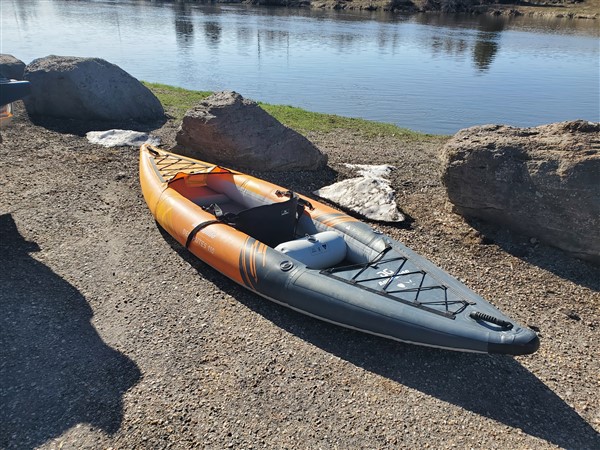
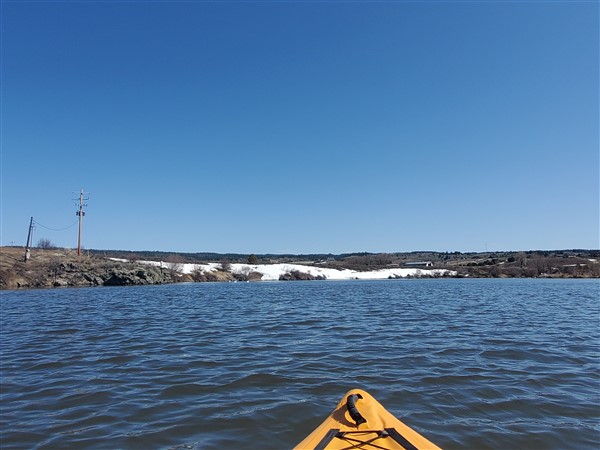
Crowding, quality of life issues, a “coarsening of society” and CRIME are all factors in my lifestyle choices at this time. I choose to avoid places where these issues are the most evident.
“Home” As an RV Traveler
As an RV traveler, I get to choose where to call “home” and when its time to relocate to a new “home”!
I like the idea of living in a region where crime is nearly nonexistent; people respect each other; and yes, everyone is armed to the teeth. I often say an armed society is a polite society! And, no, I’ve never seen anyone handle a firearm in an irresponsible manner – and if they ever did, there’s plenty of well centered folks who would set them straight, right-quick!
I choose to avoid cities; cities that I once loved and visited often but due to changing attitudes and laws, I will likely never spend time in cities like Seattle, Portland, San Francisco and the like again. Simply put, I choose quality of life over the perceived advantages of city life.
RV’s and the RV lifestyle offers certain advantages for those who are preparing to survive what appears to be coming our way
Preparation: Lessons Learned from the Great Texas Freezeout (Snowmageddon)
While wintering in the Texas Hill Country in January 2021, I had the “opportunity” to experience “the great freezeout.” During that unprecedented and prolonged cold wave, temperatures plummeted to 0F (near Austin!) and snow and ice accumulated throughout the 6 day freeze. Power failed for nearly the entire event and people were literally on their own to survive.
Living in a TRUE 4 SEASON camper enabled me to put my preparations to a real test. Long story short – I had water, a functioning furnace, electric light, a functioning fridge, and overall comfort and safety for the entire week.
Here are the attributes of my camper that helped me survive that brutal week in Texas. Much of the same will assist YOU (and me) when our entire nation is thrust into a crisis…
Further, I believe these are choices that all RV’ers should consider when purchasing and equipping their campers for either full time travel OR to use in a “bugout” scenario:
Water – a basic necessity of life
My camper is equipped with an 80 gallon fresh water tank. When I purchased my Glacier Peak 5th wheel, the tank size factored into my decision to select this camper. If you’re searching for the right RV for you and your family, please make water tank size a consideration.
When I’m identifying campers worth looking at for my Concierge RV Buying Clients, the size of the fresh water tank is definitely one of my considerations – along with several other factors including quality of construction and design.
I can make my water supply last quite a while (weeks) if needed (like when I dry camp (boondock.) Since I can’t be 100% sure of the purity of the water in my gravity tank, I use a counter-top water filter for all of my drinking water. Further, I now travel with portable water filters. In an emergency, I can use water from (literally) ANY water source for safe consumption. The Sawyer has been my #1 choice for this purpose. I now have 4 of these inexpensive, portable filters on hand should the need arise.
As I travel, I often consider the proximity of water sources – even non-potable water as my filters will provide me with a nearly limitless supply of potable water.
In addition to the water in my fresh water tank, I carry several (about 10) one-gallon water jugs. I can then use my ProOne Traveler to filter that water.
Electricity – generated without any help from “the grid”
An important tool for comfort and survival! Electricity will power your furnace on a cold night and provide you with hot water. Your furnace and hot water heater will also most likely require propane to function. Your RV Camper is equipped with a 12 volt battery system. This system can be powered by a number of different types of batteries. I have a report coming soon on batteries for your RV.
Electricity will also keep your fridge running and the food in it fresh. If you have a gas absorption type RV fridge, you’ll also need propane. 12 volt compressor fridges do not require propane to function. Residential fridges present a strain on electric demand and you’ll have to increase your battery bank to serve them.
Solar Panels can go a long way to keep your batteries fully charged. A set of 200 watt solar panels with a solar controller will suffice for basic needs. Even in winter – in some regions, you’ll generate enough power to keep your batteries charged (except potentially LiFePO4 batteries*.) In this article, I detail my own solar setup, what it will – and will not power.
*Lithium batteries do not charge well in subfreezing weather unless you purchase one with an internal heating element. This issue will be explored in an upcoming post. Personally, I have no plans to move away from basic lead acid batteries anytime soon. I find the 6v Trojan 105 batteries to be both affordable (about $400 for a pair), and reliable. To date, I have 5+ years of service from my current set of Trojan batteries.
Depending upon the climate you’re living in, you may want to have “on hand” extra propane bottles. In warmer weather, I can go weeks on one 30 pound propane bottle. Be aware, if it gets cold, you can burn through a 30 pound bottle in just a couple of nights. Personally, I travel with two 30 pound propane bottles and one 15 pound bottle. The small bottle “feeds” my grill, but can serve to fuel my generator or camper in a pinch.
Sources of Electricity
Personally, I’ve chosen to use a 200 watt “solar suitcase” (see above) that has a weather resistant solar controller (the brain that enables the panels to “talk” to the batteries) and a dual fuel generator. You can locate both items on my Electric RV Accessories page from my website.
The solar panels come with a 10 ft. cable that can alligator clip directly to the batteries. To facilitate more maneuverability (and get the panels to face the sun), I purchased a 10 ft. extender cable, giving me a total of 20 ft. to work with. In the summer, at approx. 43 degrees North latitude, I was easily able to collect 70 – 85 amp hours daily.
The generator is a 2500 watt, dual-fuel unit. It can run on gasoline OR propane. It can also be coupled with a 2nd generator and the combination will produce over 3500 watts – enough to run an air conditioner for several hours. In my case with 1 2500 watt generator, I’m able to run (and charge) “low wattage” appliances such as cell phones, laptops, and TV’s – along with the rv’s batteries.
I chose this generator as it is small (easy to transport) and light weight (about 40 pounds.) If you purchase two and the “parallel kit”, your total investment is about $1200.
Of course, since the electric grid is still functioning, my camper is equipped to connect to 30A or 50A 120 volt AC current available at many campgrounds across the nation.
Additional preps incase the grid (and everything else) fails
Food – with some advance thought, you can store quite a bit of food in your camper. My greatest encouragement to you is to pay attention to the QUALITY of food you travel with. Knowing what has happened to our food supply, I’ve become a big fan of organic food, and even then, I search for food that has been tested for the presence of heavy metals and other contaminants. For this reason, I often check and purchase from the Health Ranger Store FIRST before considering other sources. They have an extensive selection of nuts, freeze dried foods, and supplements, all of which are tested for glyphosate, heavy metals and soon dioxins!
Due to the risk of MRNA being injected into plants and animals, I am shopping as much as possible at local farmers markets when they’re open. Many farmers markets in the northern states are opened this past weekend (early May) and will remain open into early/mid Autumn.
GROW some food IN your camper!
Recently, I’ve become quite a fan of growing food inside my camper (year round.) I started with one hydroponic system and recently purchased a second, the AeroGarden Bounty Basic. I know nothing about growing plants and have never had much success in the past, but the AeroGarden systems are well made, easy to work with, and have allowed me to successfully grow a variety of plants to spice up my salads – providing a buffer for when the stores are out of stock. AND… the quality is BETTER! Now with two hydroponic systems, I plan to become even more independent of the grocery store’s produce section!
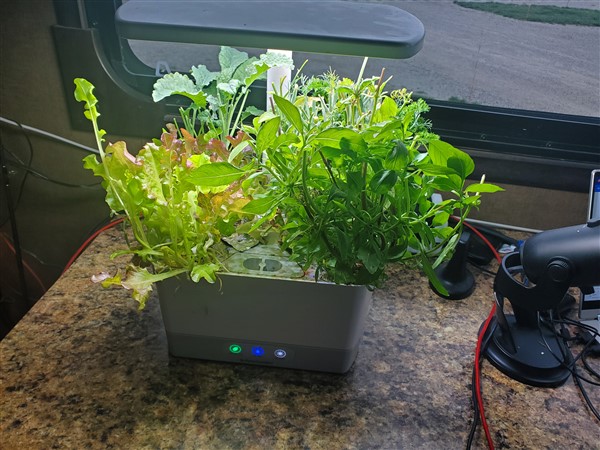
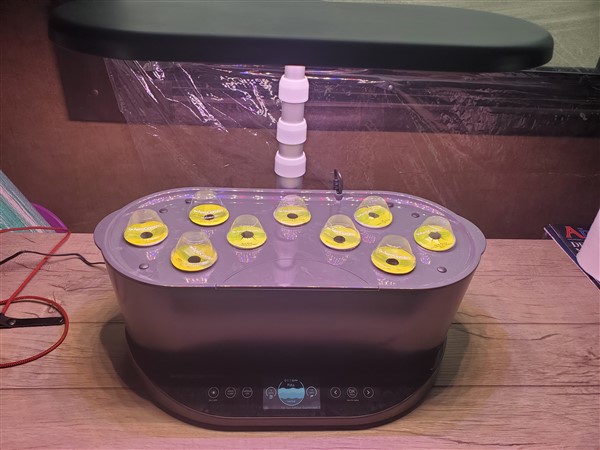
Federal Reserve Notes – Gold – Silver – Cryptos and some RV Travelers Thoughts…
Financial reserves – It’s no secret that banks are not nearly as safe a store of your financial reserves as we all once thought. The dollar itself as a store of wealth is looking shaky as well. Years ago (on the argument I’d rather be 5 years early, than 5 minutes late), I started converting my FRN’s (federal reserve notes) to other stores of wealth. Alternate stores of wealth include gold, silver, real estate and perhaps even crypto currencies.
When it comes to silver and gold, physical possession is king. As an RV’er, this can be an issue. Give this issue some thought to this and be creative!
If you elect to purchase silver and gold, you do need to buy the right products so they can be easily converted to goods and services when needed. Feel free to contact me if you wish to have a discussion about what I buy and from whom.
Cash (FRN’s) still have value in our society, and in the possible event of a credit freeze, you should have enough cash on hand – ideally secured in a fireproof box or pouch – to enable you to meet your financial obligations for several weeks. Consider a “credit freeze” scenario where your credit cards will not work but cash (FRN’s) is still accepted.
A note on banks… I suggest you have accounts with 3 separate banks, and one of them should be one of the big banks (they seem to be on the “favored” list for being bailed out.) Be sure to go through the steps to set up transfers between your accounts at each bank. This may require a few day period where “bank A” sends a small deposit to “bank B” to ensure they’re connected. This will enable you to quickly transfer funds between banks should the need arise.
Without your HEALTH, what do you really have?
Meds and health – In my view, the MOST important “insurance” you can create for yourself and your family, is to improve or optimize your overall health. I’m a living testimonial to the power of intermittent fasting, eating right, taking supplements AND remaining active – now well into my 60’s. My story is HERE (look for updates in future posts – and my personal journey into Medicare!) – and its an evolving story as I really only took full charge of my health in late Summer 2022. I’m pleased to say that as I turn 65 in a couple of months, I’m on NO meds at all and I feel GREAT. My heart history would not have predicted this – refer to my linked story above for the “rest of the story.”
Please allow me to state the obvious – good health will minimize your need for meds and more. As we face the changes occurring in our society, its far better to face them in good health!
There ARE a few steps I’ve taken to have certain things “on hand” in my camper should the need arise:
- First Aid Kit – band-aids and more… this is the kit I chose to have. It is lightweight and occupies little space.
- Traditional meds (antibiotics) – there is a company called Jase Medical that will issue you a complete “kit” of antibiotics to have ‘on hand’ should you need them – especially in the event that a medical doctor can not be reached at that time.
- Supplements and other treatments I personally use – feel free to contact me. I will be glad to share what I have grown to have faith in and use regularly.
Additional Considerations for your RV Survival Plan
Extra Fuel – Carrying extra fuel is a really good idea, especially if it is NOT gasoline. Gasoline is highly volatile and has a limited “shelf-life.” On the other hand, if you drive a diesel, I highly encourage you to consider carrying extra fuel. Since I have a pickup truck, I’m taking a serious look at fuel transfer tanks for the bed of my truck. It fits behind the cab and in front of the 5th wheel hitch and transfers at the push of a button from inside my truck. I expect to finalize this purchase soon and will report details to you on what I had installed – and why.
Protection – I personally believe its important to have one (or more) ways of protecting yourself in and around your camper. Many travelers opt for dogs. Others choose firearms. I’m not going into much depth here on what you choose and why you might choose that method, I will only suggest, if you opt for firearms, be sure to get appropriate (ongoing) training and be sure to secure them properly.
Other things to have ‘in house’ incase of supply chain issues
When my furnace failed on one of the coldest nights of the year in my first 5th wheel in 2013, the need for spare parts became quite apparent. For this reason, I have a spare thermostat and mother board for my fridge. For my furnace, a dinosaur board, limit switch and sail switch. Details about these parts and sources for them can be found HERE. In addition, I carry a spare water pump, and filters and oil for my truck.
When it comes to RV Life and Preparation for a Crisis…
What have I forgotten? Please use the space below to share your thoughts. Do you have similar concerns? Have you taken similar steps? Also, if you wish to be notified of upcoming posts, please subscribe to my newsletter below…
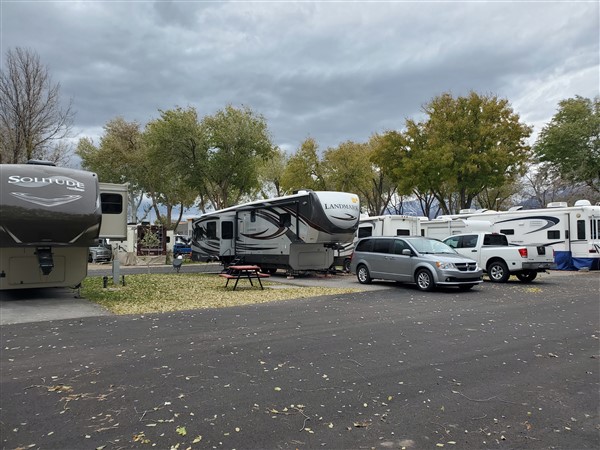
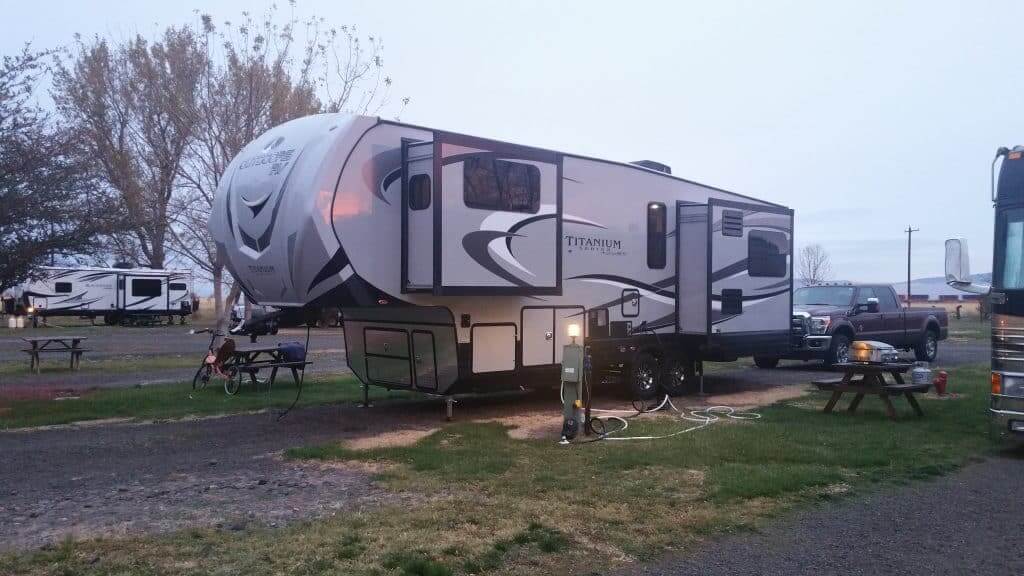
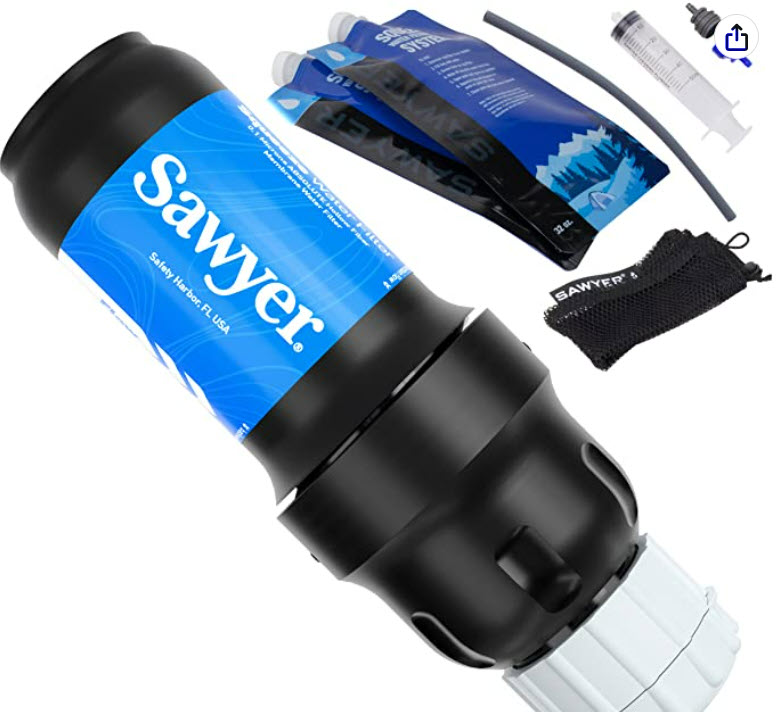
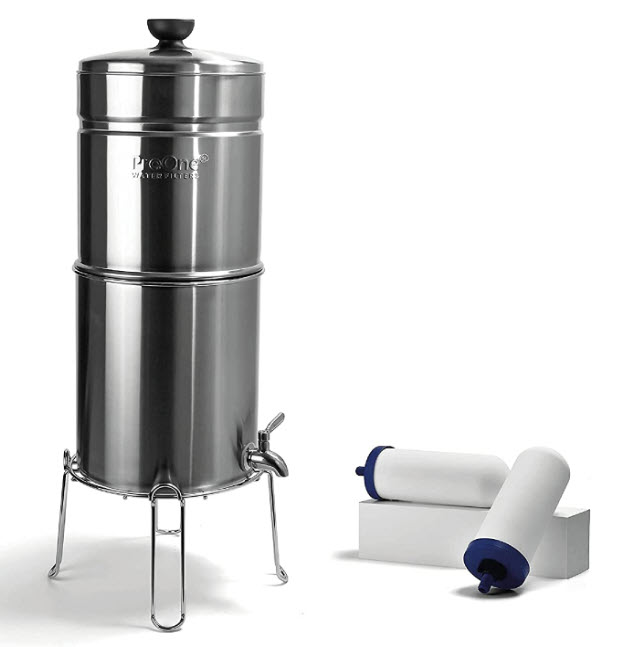
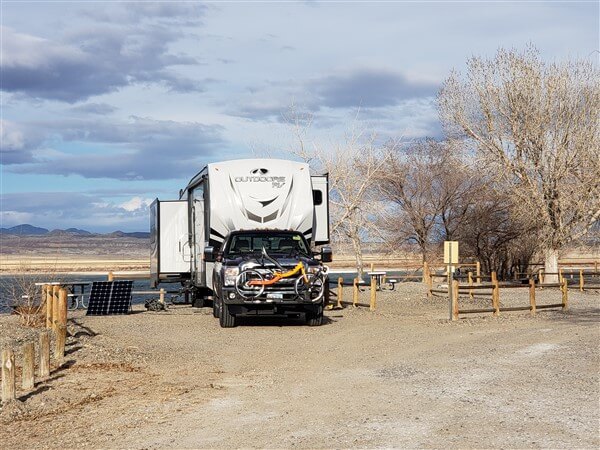
Wow, such a great article. Thanks for doing what you do. Helping the RV community with helpful and very useful and practical tips and suggestion.
thanks so much for your kind words!
al